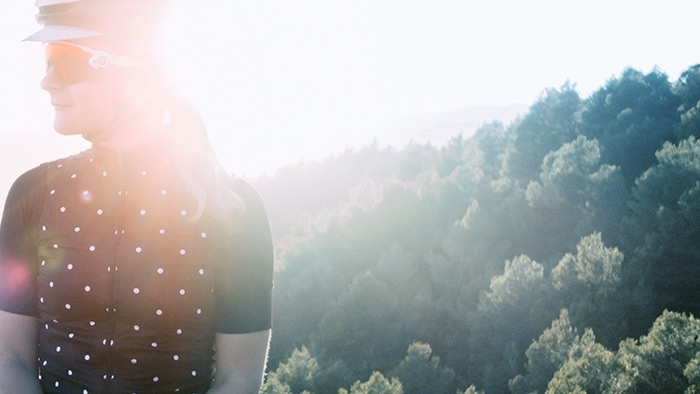Training during the off-season can be especially difficult, especially when it comes to staying motivated for long hours of training indoors or in adverse weather. Over many years as an athlete and coach, I have identified three key strategies or skills to incorporate into your winter training plan to help you stay on track while preparing for a successful competitive season. Establishing your training goals, adapting your activities, and testing new approaches will make your off-season training more effective and will lead to a more successful race season.
Be Smart About Goals
When your next competition is seven or eight months away, you may struggle to find the same motivation as when your next test is more imminent. But setting S.M.A.R.T. Goals (Specific, Measurable, Achievable, Relevant, Time-bound) is as important for the off-season as it is for the competition season.
For example, a triathlete who comes from a swimming background may not hesitate to swim a 100 x 100-meter set in the pool, but struggles with volume on the run and bike. For this athlete, an off-season goal of increasing cycling and running volume could provide extra motivation. Just remember to increase volume gradually (5-10% per week) to avoid injury.
Like competitive season goals, these training-specific goals can help sustain motivation through longer workouts in winter conditions. After accomplishing their off-season goals, the athlete above might have a more positive outlook and stronger mental focus, in addition to better physical conditioning when entering the preseason period. Any training goals should be focused on individual training achievements and should avoid competitive sport-specific goals to avoid mental fatigue during the racing season.
Adapt to Survive the Winter Chill
If you prepare properly and adjust your workouts appropriately, training through the winter can build your confidence and prepare you for challenges that arise during race season. Training in adverse conditions requires mental fortitude, as well as equipping yourself physically to deal with the conditions. One way that I like to adjust training is by incorporating winter sports as alternative workouts. Snowshoeing and cross-country skiing are great ways to accomplish off-season physiological goals while enjoying what would normally be adverse conditions.
In my case, while at the Olympic Training Center in Colorado Springs, CO, one of my winter goals was to not ride inside at all. One particularly wintery day, I had a four-hour ride scheduled during a blizzard. I could just have jumped on the trainer instead, but my goal compelled me to train outside, which meant adjusting to the conditions. I switched to my seldom-used mountain bike, added heating pouches to my jacket and booties, and even set out a second set of clothes to practice a “winter transition” in the middle of the ride. Getting the workout completed kept me on goal. A few months later, at the first World Cup of the season, it was raining and cold. I was not the fastest athlete that day, but I was tougher and better prepared for the conditions because they could not compare to the Blizzard Ride.
Experiment to Stay Competitive
When all else fails, new toys or training activities can motivate us while building towards improved performance during the competition season. The off-season is the perfect time to introduce new equipment and new techniques. If you plan to make a change in training shoes, whether a switching brands or models, it is best to allow a conversion period when you alternate between your previous model and the new one. Accomplishing this during the off-season can bring focus to your running, motivate you to complete training sessions, and avoid the pitfalls of introducing new shoes during the season—like blisters.
On the bike, you could test new saddle designs, shoes or pedal systems—the off-season is also a great time to schedule a bike fit session. You can adapt to it gradually during lower intensity training and adjust over time to maximize efficiency, power or comfort. The worst message a coach can get during the season, especially from a race expo, is that an athlete has just bought new equipment or made changes to their bike position. Working with a coach to evaluate new equipment and positions during the off-season will keep you focused on performance and motivated to prepare in advance for competitions.
Turn Challenges into an Advantage
Training in adverse conditions can make you tougher, but can be very taxing mentally and physically. Today there are great options to run and bike indoors, which can provide relief from the weather, but they should not be used all the time. Creating a balanced training plan and incorporating some outdoor sessions will prepare you better mentally and physically to compete in competitions when the weather or conditions are not ideal.
By setting S.M.A.R.T Goals, adjusting your training to the conditions and testing new equipment at the right time, you will maintain keen focus and strong motivation year round. These strategies will turn challenges into opportunities to use conditions to your advantage and to outperform your competition.









